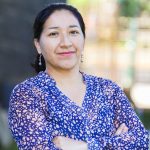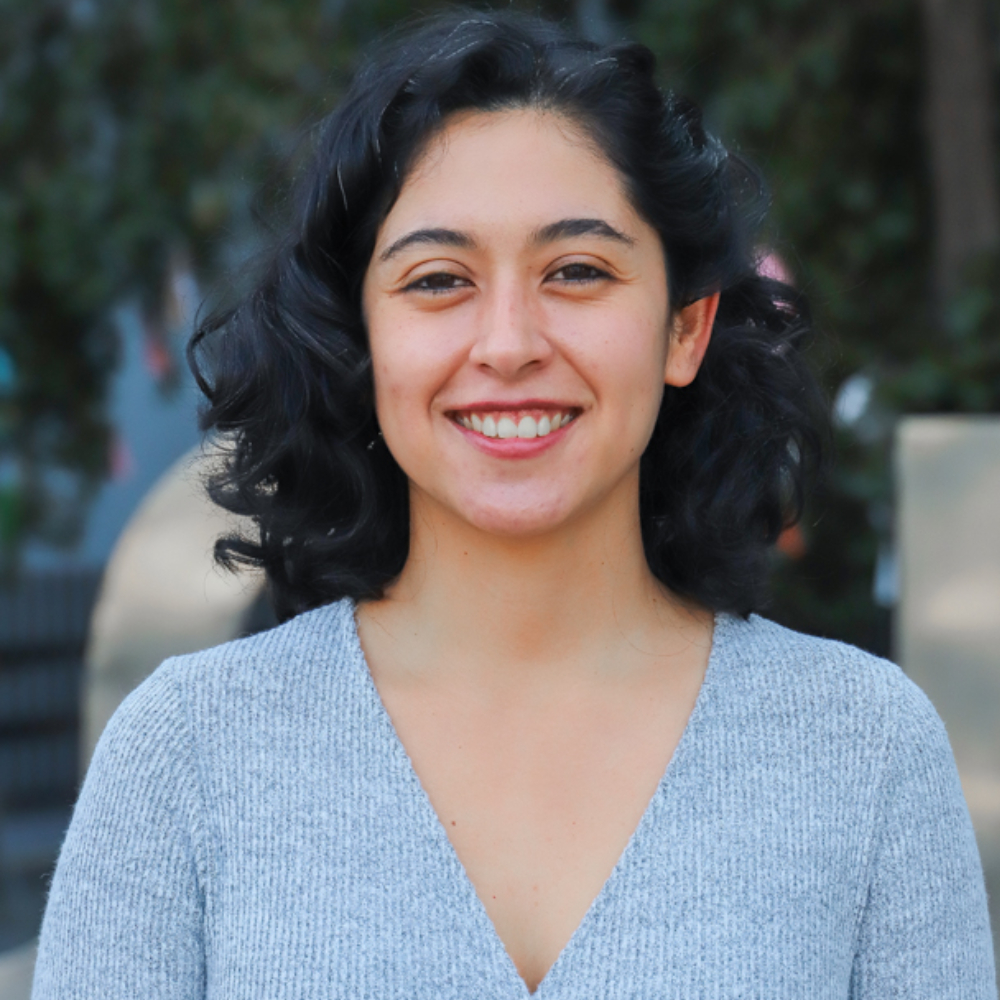Proyectos
- FIC IDI 40048442-0
- Febrero 2023 - Julio 2024
En EjecuciónDAAD - Alemania
ANTIBIOtic RESidues in Food: a comparative analysis in Bolivia, Italy, Ghana, and Nepal
[vc_section el_class="container mx-auto align-items-center circle--pattern" css=".vc_custom_1648956589196{padding-top: 3rem !important;}"][vc_row el_class="pb-5"][vc_column][vc_wp_custommenu nav_menu="6"][uoh_breadcrumb_component automatic_breadcrumb="true"][uoh_title_component title_dropdown="big" title_decorator="true"]{{title}}[/uoh_title_component][vc_column_text css=""]Antimicrobial resistance is a global phenomenon aggravated in recent decades by the inappropriate use of antimicrobials in human and veterinary medicine, the lack of prevention and control measures for infections associated with health care, and the limited development of new antimicrobials. It causes an increase in mortality, morbidity, and health spending. In this sense, the irrational use of antimicrobials in food-producing animals can reduce the effectiveness of those antibiotics in treating animal and human diseases. It also represents an additional risk for antimicrobial resistance by transferring antibiotics to food for human consumption and generating a new source of exposure. The residual antibiotics in food have been related to some adverse effects on human health, including allergic reactions, disruption of digestive system function, and chronic toxic effects from prolonged low-level exposure. It also represents a risk for the animals by jeopardizing the effectiveness of the necessary treatments.
Considering that, the project seeks to generate evidence regarding progress at the local level in regulatory issues and regarding the presence of antibiotics in food to raise awareness about the proper use of antibiotics in animals and humans and promote good practices[/vc_column_text][/vc_column][/vc_row][/vc_section][vc_section css=".vc_custom_1649209804184{background-color: #f6faff !important;}" el_class="p-md-0 pt-md-5"][vc_row el_class="container mx-auto align-items-center p-md-0 pt-5"][vc_column el_class="p-0"][/vc_column][/vc_row][/vc_section][vc_section css=".vc_custom_1649210787516{background-color: #f6faff !important;}" el_class="p-md-0 pt-md-5 pb-md-5"][vc_row el_class="container mx-auto align-items-center"][vc_column][/vc_column][/vc_row][/vc_section]
Investigador/a Responsable
- FIC IDI 40048442-0
- Febrero 2023 - Julio 2024
En EjecuciónDAAD - Alemania
ECOH: Environment Care with a One Health approach – Water
[vc_section el_class="container mx-auto align-items-center circle--pattern" css=".vc_custom_1648956589196{padding-top: 3rem !important;}"][vc_row el_class="pb-5"][vc_column][vc_wp_custommenu nav_menu="6"][uoh_breadcrumb_component automatic_breadcrumb="true"][uoh_title_component title_dropdown="big" title_decorator="true"]{{title}}[/uoh_title_component][vc_column_text css=""]Water is an irreplaceable resource for developing socioeconomic activities and maintaining life on the planet. According to projections, water scarcity will increase, especially in those countries vulnerable to the effects of climate change and accelerated population growth. The negative impacts of the water deficit are already visible in some regions of the planet.
Through the ECOH-WATER project, we will develop capacities for the access and use of rainwater in educational centers in Guatemala and Bolivia for sustainable consumption, adapting to the impacts generated by climate change through strategies based on local needs. To do this, we will first diagnose the areas at risk of drought using Geographic Information Systems (GIS) to prioritize interventions. In the selected areas, we will develop an Action Research study with a strong participatory component to involve communities in implementing a rainwater harvesting system. Additionally, we will implement educational strategies for developing skills in seeking rational and sustainable water use. The project will establish alliances with local actors for the project's sustainability.
The search for strategies to access quality water for human, animal, and environmental consumption is a worldwide priority. It must involve the communities, raise awareness about natural resources and risk behaviors, and work collaboratively with decision-makers. On the other hand, the transdisciplinary work proposed in this project will allow the search for solutions with an integral vision. On the other hand, this project highlights the south-south collaboration to generate learning, enhance local resources, and move toward our region's sustainable development.[/vc_column_text][/vc_column][/vc_row][/vc_section][vc_section css=".vc_custom_1649209804184{background-color: #f6faff !important;}" el_class="p-md-0 pt-md-5"][vc_row el_class="container mx-auto align-items-center p-md-0 pt-5"][vc_column el_class="p-0"][/vc_column][/vc_row][/vc_section][vc_section css=".vc_custom_1649210787516{background-color: #f6faff !important;}" el_class="p-md-0 pt-md-5 pb-md-5"][vc_row el_class="container mx-auto align-items-center"][vc_column][/vc_column][/vc_row][/vc_section]
Co-Investigador/a
- FOVI230047
- Febrero 2023 - Febrero 2024
En EjecuciónSociedad Chilena de Nutrición
No Whey: Lácteos altos en proteína y ejercicio de resistencia para la mejora de la composición corporal y función muscular de personas mayores.
[vc_section el_class="container mx-auto align-items-center circle--pattern" css=".vc_custom_1648956589196{padding-top: 3rem !important;}"][vc_row el_class="pb-5"][vc_column][vc_wp_custommenu nav_menu="6"][uoh_breadcrumb_component automatic_breadcrumb="true"][uoh_title_component title_dropdown="big" title_decorator="true"]{{title}}[/uoh_title_component][vc_column_text css=""]La suplementación con proteínas es una de las principales recomendaciones ante la practica regular de ejercicio físico de resistencia (RT). En personas mayores, la necesidad de proteína se incrementa particularmente ante cambios fisiológicos y fisiopatológicos los que se asocian con la pérdida de la función y tejido muscular, por lo que su ingesta se hace de mayor relevancia en esta población. Los lácteos fermentados como el yogur, y en especial los con un contenido extra de proteína, han aumentado su popularidad y consumo en el mercado nacional. Su composición nutricional resulta de particular interés, dado su perfil de aminoácidos y en particular su alto contenido de Leucina, el que podría compararse con los clásico suplementos de proteína recomendados para la ganancia y recuperación muscular. Objetivo: Analizar el efecto en la composición corporal, perfil lipídico, condición fisica y funcionalidad muscular inducidas por ingesta de yogures altos en proteína versus proteína Whey junto un programa de resistencia muscular en personas mayores Hipótesis: La ingesta de yogures altos en proteína conllevará a iguales o mayores ganancias de masa muscular, condición fisica y funcionalidad que las obtenidas con la ingesta de proteínas Whey en conjunto a un entrenamiento de resistencia en personas mayores. Metodología: Se reclutarán 16 personas mayores (60-75 años), sanas y sin intolerancia a la lactosa para llevar a cabo 8 semanas de entrenamiento de resistencia (RT) muscular 3 veces por semana, los que de forma aleatoria serán suplementados con yogurt alto en proteínas (YPRT) o proteína Whey (WPRT). Al inicio y al término de la intervención se evaluará la composición corporal mediante DEXA, fuerza muscular, consumo máximo de oxígeno y perfil lipídico. Resultados Esperados: Se espera que el grupo YPRT logre incrementos similares o superiores en la fuerza muscular, masa libre de grasa, perfil lipídico y disminución de la masa grasa y que el grupo WPRT.[/vc_column_text][/vc_column][/vc_row][/vc_section][vc_section css=".vc_custom_1649209804184{background-color: #f6faff !important;}" el_class="p-md-0 pt-md-5"][vc_row el_class="container mx-auto align-items-center p-md-0 pt-5"][vc_column el_class="p-0"][/vc_column][/vc_row][/vc_section][vc_section css=".vc_custom_1649210787516{background-color: #f6faff !important;}" el_class="p-md-0 pt-md-5 pb-md-5"][vc_row el_class="container mx-auto align-items-center"][vc_column][/vc_column][/vc_row][/vc_section]
Co-Investigador/a
- URO1795
- Enero 2023 - Enero 2024
FinalizadoAgencia Nacional de Investigación y Desarrollo - ANID
Vinculación para estrategias biotecnológicas y académicas de optimización del sistema suelo – planta, con miras a la productividad sustentable de alimentos y adaptación de las regiones agrícolas a cambios globales
[vc_section el_class="container mx-auto align-items-center circle--pattern" css=".vc_custom_1648956589196{padding-top: 3rem !important;}"][vc_row el_class="pb-5"][vc_column][vc_wp_custommenu nav_menu="6"][uoh_breadcrumb_component automatic_breadcrumb="true"][uoh_title_component title_dropdown="big" title_decorator="true"]{{title}}[/uoh_title_component][vc_column_text css=""]Promover una alianza nacional e internacional con el fin de fortalecer la red de colaboración en el sistema sueloplanta para la generación sustentable e inocua de alimentos, mediante la aplicación de estrategias biotecnológicas y académicas, con foco en el cambio climático y prevención de contaminantes emergentes, como las micotoxinas.[/vc_column_text][/vc_column][/vc_row][/vc_section][vc_section css=".vc_custom_1649209804184{background-color: #f6faff !important;}" el_class="p-md-0 pt-md-5"][vc_row el_class="container mx-auto align-items-center p-md-0 pt-5"][vc_column el_class="p-0"][/vc_column][/vc_row][/vc_section][vc_section css=".vc_custom_1649210787516{background-color: #f6faff !important;}" el_class="p-md-0 pt-md-5 pb-md-5"][vc_row el_class="container mx-auto align-items-center"][vc_column][/vc_column][/vc_row][/vc_section]
Investigador/a Responsable
- #635276
- Enero 2023 - Enero 2024
FinalizadoAgencia Nacional de Investigación y Desarrollo - ANID
Vinculación para estrategias biotecnológicas y académicas de optimización del sistema suelo – planta, con miras a la productividad sustentable de alimentos y adaptación de las regiones agrícolas a cambios globales
[vc_section el_class="container mx-auto align-items-center circle--pattern" css=".vc_custom_1648956589196{padding-top: 3rem !important;}"][vc_row el_class="pb-5"][vc_column][vc_wp_custommenu nav_menu="6"][uoh_breadcrumb_component automatic_breadcrumb="true"][uoh_title_component title_dropdown="big" title_decorator="true"]{{title}}[/uoh_title_component][vc_column_text css=""]Promover una alianza nacional e internacional con el fin de fortalecer la red de colaboración en el sistema sueloplanta para la generación sustentable e inocua de alimentos, mediante la aplicación de estrategias biotecnológicas y académicas, con foco en el cambio climático y prevención de contaminantes emergentes, como las micotoxinas.[/vc_column_text][/vc_column][/vc_row][/vc_section][vc_section css=".vc_custom_1649209804184{background-color: #f6faff !important;}" el_class="p-md-0 pt-md-5"][vc_row el_class="container mx-auto align-items-center p-md-0 pt-5"][vc_column el_class="p-0"][/vc_column][/vc_row][/vc_section][vc_section css=".vc_custom_1649210787516{background-color: #f6faff !important;}" el_class="p-md-0 pt-md-5 pb-md-5"][vc_row el_class="container mx-auto align-items-center"][vc_column][/vc_column][/vc_row][/vc_section]
Responsable Alterno
- 2022.05941.PTDC
- Enero 2023 - Diciembre 2025
En EjecuciónAgencia Nacional de Investigación y Desarrollo - ANID
Legitimidad de las policías en Chile: el efecto causal de la violencia y la corrupción desde una perspectiva multi-actor, longitudinal y multimétodos
[vc_section el_class="container mx-auto align-items-center circle--pattern" css=".vc_custom_1648956589196{padding-top: 3rem !important;}"][vc_row el_class="pb-5"][vc_column][vc_wp_custommenu nav_menu="6"][uoh_breadcrumb_component automatic_breadcrumb="true"][uoh_title_component title_dropdown="big" title_decorator="true"]{{title}}[/uoh_title_component][vc_column_text css=""]El objetivo principal del proyecto es generar información sobre los niveles de legitimidad y justicia procedimental de las policías entre la ciudadanía de Chile durante los próximos 3 años, así como entender los antecedentes que pueden llevar a un aumento o disminución de las mismas.
A partir del escenario actual posterior al estallido social, post pandemia y de aumento en los niveles de inseguridad ciudadana, resulta clave indagar en las percepciones que diferentes grupos sociales tienen sobre la legitimidad policial y las formas en que distintos eventos (corrupción, abuso policial, posibles reformas) impactan en ella en un contexto de alta incertidumbre y cambio. Esto último confiere a nuestro proyecto un potencial novedoso y transformador a nivel de evidencia empírica hasta la fecha inexistente sobre cómo se produce la legitimidad policial y cómo ésta es un antecedente relevante para tener en cuenta en el marco de posibles reformas policiales.[/vc_column_text][/vc_column][/vc_row][/vc_section][vc_section css=".vc_custom_1649209804184{background-color: #f6faff !important;}" el_class="p-md-0 pt-md-5"][vc_row el_class="container mx-auto align-items-center p-md-0 pt-5"][vc_column el_class="p-0"][/vc_column][/vc_row][/vc_section][vc_section css=".vc_custom_1649210787516{background-color: #f6faff !important;}" el_class="p-md-0 pt-md-5 pb-md-5"][vc_row el_class="container mx-auto align-items-center"][vc_column][/vc_column][/vc_row][/vc_section]
Co-Investigador/a
- CP22-E004
- Enero 2023 - Diciembre 2024
AdjudicadoMinisterio de Ciencia, Tecnología, Conocimiento e Innovación
Explorando el Ciclo del Agua, Sendero Educativo del Museo del Agua en la Región de O’Higgins
[vc_section el_class="container mx-auto align-items-center circle--pattern" css=".vc_custom_1648956589196{padding-top: 3rem !important;}"][vc_row el_class="pb-5"][vc_column][vc_wp_custommenu nav_menu="6"][uoh_breadcrumb_component automatic_breadcrumb="true"][uoh_title_component title_dropdown="big" title_decorator="true"]{{title}}[/uoh_title_component][vc_column_text css=""]Proyecto de divulgación científica en el Marco del Museo del Agua cuya temática principal es el ciclo del agua[/vc_column_text][/vc_column][/vc_row][/vc_section][vc_section css=".vc_custom_1649209804184{background-color: #f6faff !important;}" el_class="p-md-0 pt-md-5"][vc_row el_class="container mx-auto align-items-center p-md-0 pt-5"][vc_column el_class="p-0"][/vc_column][/vc_row][/vc_section][vc_section css=".vc_custom_1649210787516{background-color: #f6faff !important;}" el_class="p-md-0 pt-md-5 pb-md-5"][vc_row el_class="container mx-auto align-items-center"][vc_column][/vc_column][/vc_row][/vc_section]
Responsable Alterno
- PID2022-141517NB-I00
- Enero 2023 - Enero 2026
AdjudicadoGobierno Regional - GORE
Transferencia Laboratorio Ecosistemas de Humedales
[vc_section el_class="container mx-auto align-items-center circle--pattern" css=".vc_custom_1648956589196{padding-top: 3rem !important;}"][vc_row el_class="pb-5"][vc_column][vc_wp_custommenu nav_menu="6"][uoh_breadcrumb_component automatic_breadcrumb="true"][uoh_title_component title_dropdown="big" title_decorator="true"]{{title}}[/uoh_title_component][vc_column_text css=""]Proyecto enfocado en el estudio de principales humedales de la región de O'Higgins[/vc_column_text][/vc_column][/vc_row][/vc_section][vc_section css=".vc_custom_1649209804184{background-color: #f6faff !important;}" el_class="p-md-0 pt-md-5"][vc_row el_class="container mx-auto align-items-center p-md-0 pt-5"][vc_column el_class="p-0"][/vc_column][/vc_row][/vc_section][vc_section css=".vc_custom_1649210787516{background-color: #f6faff !important;}" el_class="p-md-0 pt-md-5 pb-md-5"][vc_row el_class="container mx-auto align-items-center"][vc_column][/vc_column][/vc_row][/vc_section]
Co-Investigador/a
- 11200561
- Enero 2023 - Diciembre 2025
En EjecuciónEasmus +
CSU4Change: Educational roadmap for transformative agency connecting School, Community and University for social change
[vc_section el_class="container mx-auto align-items-center circle--pattern" css=".vc_custom_1648956589196{padding-top: 3rem !important;}"][vc_row el_class="pb-5"][vc_column][vc_wp_custommenu nav_menu="6"][uoh_breadcrumb_component automatic_breadcrumb="true"][uoh_title_component title_dropdown="big" title_decorator="true"]{{title}}[/uoh_title_component][vc_column_text css=""]The project seeks to achieve new understandings of how schools (teachers/students), communities (homes/community centers) and universities (researchers/master students) can work together to build knowledge and engagement on contemporary issues of great importance for European societies. In this way young people will be able to take on new roles in our societies, as transformative agency towards merging social and environmental issues and their own future lives. One concrete result will be the development of a roadmap for social change and transformative agency, defined as a multimodal guideline. This will be built on projects and activities at schools in combination with results generated through the collaboration between partners on issues of transformative agency and ways of dealing with social change within schools. Another result of public interest will be emerging constellations of collaboration between educational partners and countries.[/vc_column_text][/vc_column][/vc_row][/vc_section][vc_section css=".vc_custom_1649209804184{background-color: #f6faff !important;}" el_class="p-md-0 pt-md-5"][vc_row el_class="container mx-auto align-items-center p-md-0 pt-5"][vc_column el_class="p-0"][/vc_column][/vc_row][/vc_section][vc_section css=".vc_custom_1649210787516{background-color: #f6faff !important;}" el_class="p-md-0 pt-md-5 pb-md-5"][vc_row el_class="container mx-auto align-items-center"][vc_column][/vc_column][/vc_row][/vc_section]
Co-Investigador/a
- 2022.05941.PTDC
- Enero 2023 - Diciembre 2026
En EjecuciónFundaçao para a Ciencia e Tecnología (Portugal)
The Past in the Present: Antecedents and Consequences of Luso-Tropicalism for the Legitimation of Contemporary Social and Racial Inequality
[vc_section el_class="container mx-auto align-items-center circle--pattern" css=".vc_custom_1648956589196{padding-top: 3rem !important;}"][vc_row el_class="pb-5"][vc_column][vc_wp_custommenu nav_menu="6"][uoh_breadcrumb_component automatic_breadcrumb="true"][uoh_title_component title_dropdown="big" title_decorator="true"]{{title}}[/uoh_title_component][vc_column_text css=""]The general objective of LUSO is to analyze how the organizing dimensions of colonial ideological thinking persist and operate in Portuguese society, and what function they have in legitimizing discriminatory attitudes and behaviors toward formerly colonized groups. The research questions will be addressed in four working packages (WP). Specifically, LUSO will (1) develop and validate a new instrument measuring the organizing dimensions of Luso-tropicalism, as a postcolonial ideological thinking, which we propose to be organized in four latent factors (WP1); (2) test the social normativity of Luso-tropicalism (WP2); (3) test if it operates as a legitimizing myth within the general framework of intergroup ideologies (WP3), by proposing that it can dampen support to inclusive social policies (i.e., a suppression effect) and facilitate discriminatory attitudes and behaviors toward disadvantaged people from formerly colonized groups (i.e., a foster process); (4) examine the social diffusion of these assumptions with a sample of the Portuguese population (WP4), while testing potential moderators of those relationships, namely socialization patterns (i.e., intergenerational differences) and group status (high SES vs low SES). LUSO will conduct a multi-method research program that includes qualitative and quantitative studies, correlational and experimental research designs, and an online survey. LUSO will make a substantial contribution to the study of the psychosocial processes of colonial legacy in the national context and will significantly advance the knowledge about the structure of postcolonial ideological thinking in the international scene.[/vc_column_text][/vc_column][/vc_row][/vc_section][vc_section css=".vc_custom_1649209804184{background-color: #f6faff !important;}" el_class="p-md-0 pt-md-5"][vc_row el_class="container mx-auto align-items-center p-md-0 pt-5"][vc_column el_class="p-0"][/vc_column][/vc_row][/vc_section][vc_section css=".vc_custom_1649210787516{background-color: #f6faff !important;}" el_class="p-md-0 pt-md-5 pb-md-5"][vc_row el_class="container mx-auto align-items-center"][vc_column][/vc_column][/vc_row][/vc_section]
Co-Investigador/a







